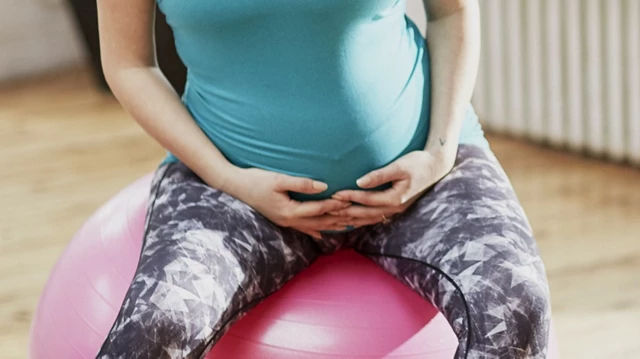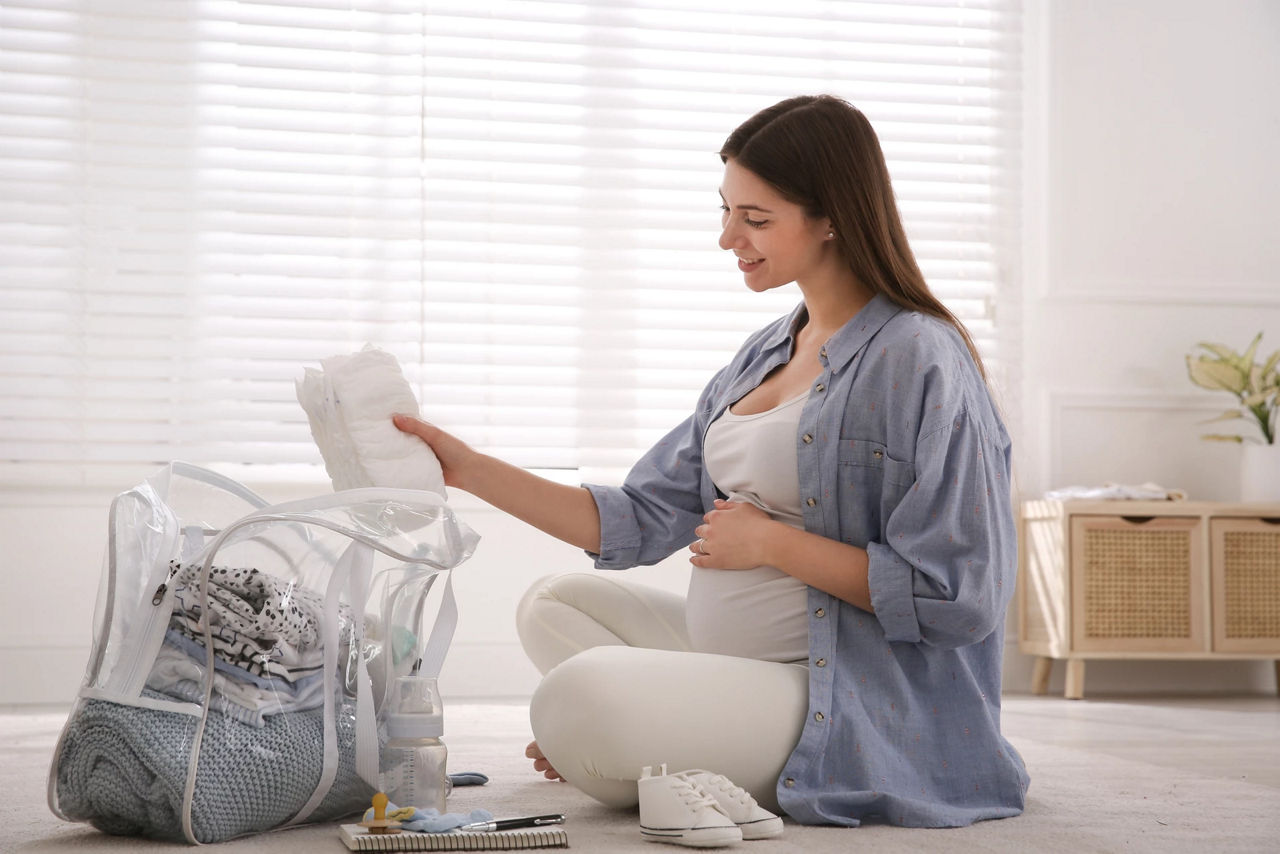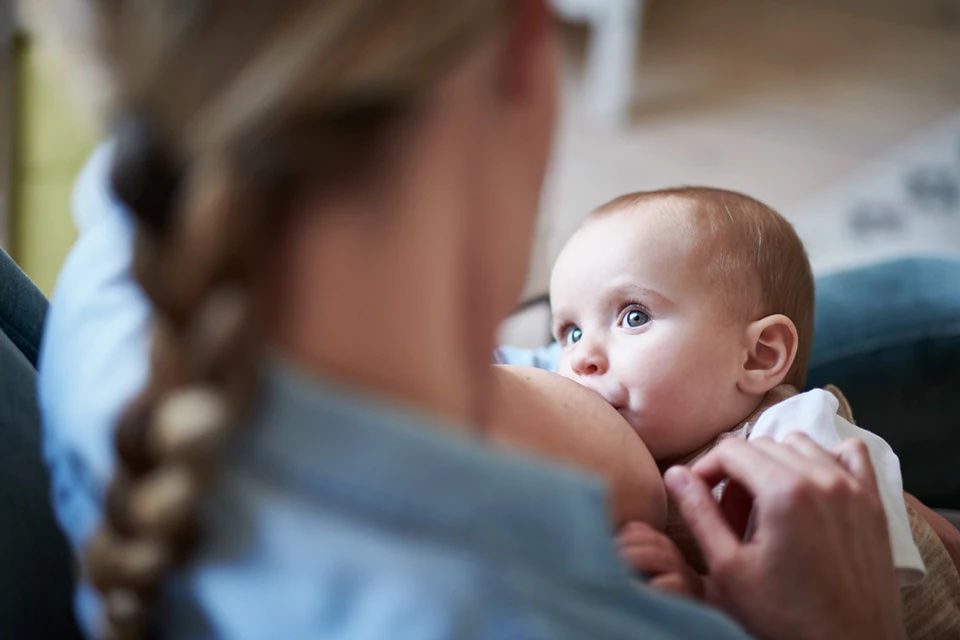By the time you're 32 weeks pregnant, most of your baby’s body systems are formed, functioning, and ready for life outside the womb. Much of their development from now on will focus on growth, which is why vitamin D is so essential. Learn how this nutrient supports your baby’s bones as they grow and how to make sure you’re getting enough.
32 weeks pregnant
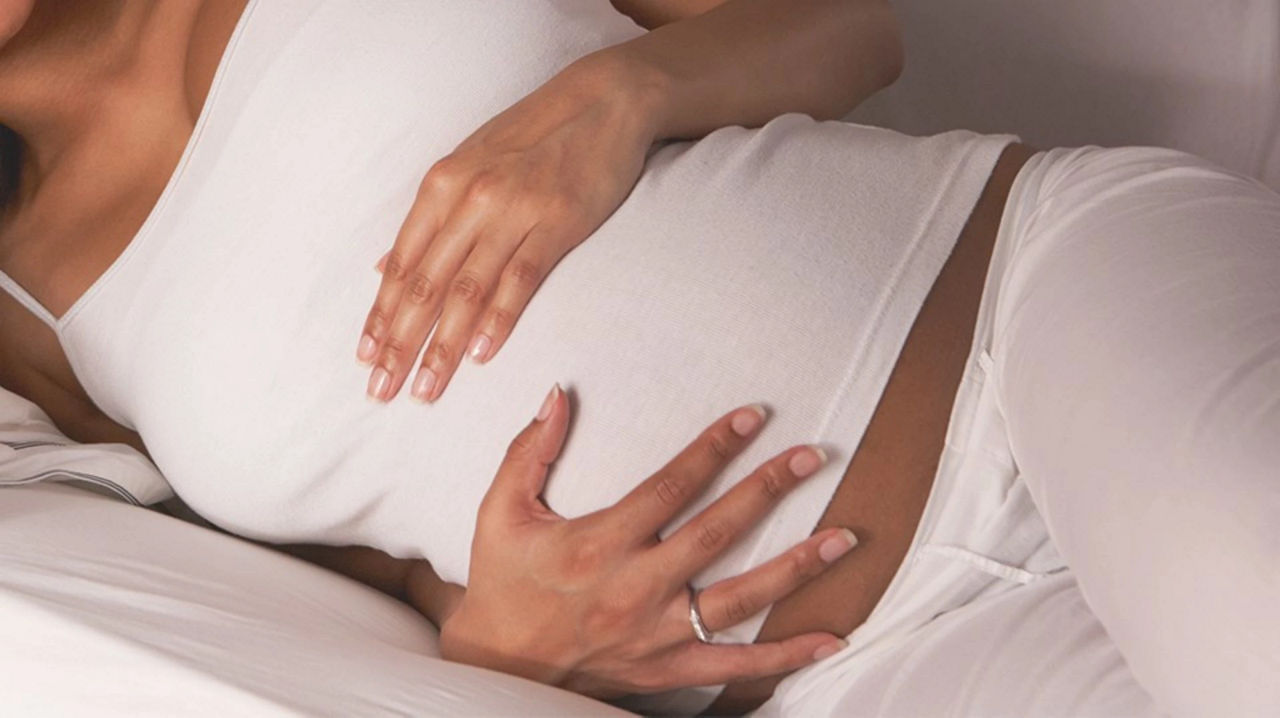
Explore pregnancy stages week by week
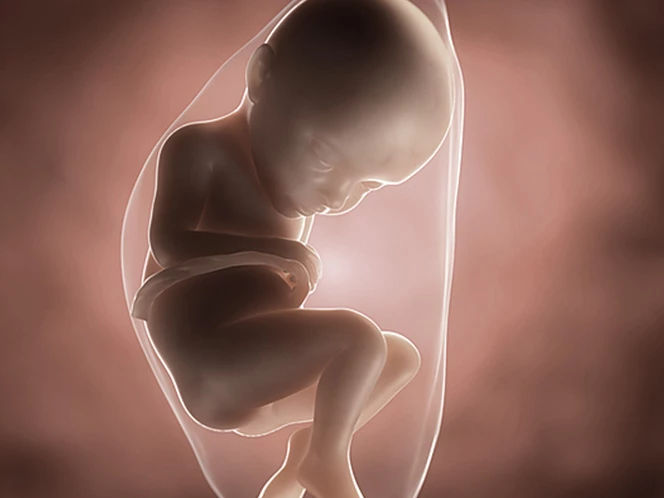 Your baby's development at 32 weeks
Your baby's development at 32 weeks
D for development
Your baby's development at 32 weeks
Their lungs still have some developing to do, but breathing amniotic fluid3 helps to strengthen them in preparation for their first inhalation of air1.
Although your baby sleeps for much of the day, when they’re awake, they may be experimenting with their new ability to turn their head from side to side1. They’re becoming more aware of their own body now, and can suck their thumb and kick their feet whenever the mood takes them4.
Some babies will be in a head down position by week 32, known as cephalic presentation, ready for birth. If your baby is still enjoying a head up or transverse (horizontal) position, don’t worry; there’s plenty of time for them to turn2.
By week 32 of pregnancy, your baby can turn their head from side to side.
Vitamin D: A key ingredient for future bone health
Vitamin D is an important nutrient to include in your third trimester diet. It regulates the levels of calcium and phosphorus in the body, which are both essential to your baby’s developing bones5,6. In extreme cases a lack of vitamin D in the mother can cause a baby’s bones to soften, which can lead to the rare condition of rickets7.
As well as protecting and helping build their bones, the vitamin D you consume now helps to build up your baby’s personal store of this nutrient, which they will rely on in the first few months after birth.
The body makes vitamin D when the skin is exposed to the UVB rays in sunlight. However, the latitude of the UK means that we only get a few months of effective sunlight each year during the summer. This means that the vitamin D you get through skin exposure may not be enough to support you and your baby throughout the whole of your pregnancy.
You can increase your vitamin D intake from week 32 onwards by making sure you eat good food sources. However, these are unlikely to provide enough. In the UK, it’s recommended that you take a supplement of 10 micrograms of vitamin D each day throughout pregnancy to guarantee that you get the levels you and your baby need8. The Department of Heath also recommends that you should continue taking your vitamin D supplement after your baby is born if you are planning to breastfeed your baby8.
It’s recommended that you get 10 micrograms of vitamin D each day during pregnancy
Next Steps
Check that your prenatal multivitamin includes 10 micrograms of vitamin D and if not, buy a separate one.
Eating the following vitamin D-rich foods regularly will also up your intake9:
- Oily fish, including herring, mackerel, sardines, salmon or trout (but this should be limited to two portions per week as oily fish can contain toxins which can be harmful to your developing baby).
- Eggs – the yolk contains vitamin D
- Fortified foods – some brands of milk, and breakfast cereals, margarines and low-fat spreads have added vitamin D
related articles
Read More

Get in touch with our Careline experts
Our nutritionists and feeding advisors are always on hand to talk about feeding your baby. So if you have a question, just get in touch
- Deans A. Your New Pregnancy Bible, The experts’ guide to pregnancy and early parenthood. 4th ed. London: Carroll & Brown Publishers Limited, 2013. p. 46.
- NHS UK. You and your baby at 29-32 weeks pregnant [Online]. 2015. Available at: www.nhs.uk/Conditions/pregnancy-and-baby/pages/pregnancy-weeks-29-30-31-32.aspx [Accessed August 2016].
- NHS UK. What is the amniotic sac? [Online]. 2015. Available at: www.nhs.uk/chq/Pages/2310.aspx?CategoryID=54 [Accessed August 2016].
- Murkoff H, Mazel S. What to Expect When You’re Expecting. 4th ed. London: Simon & Schuster Ltd, 2009. p. 306.
- Commission Regulation (EC) No 1024/2009 of 29 October 2009 on the authorisation and refusal of authorisation of certain health claims made on food and referring to the reduction of disease risk and to children’s development and health. OJ L 283, 30.10.2009, pp. 22–29.
- Commission Regulation (EC) No 983/2009 of 21 October 2009 on the authorisation and refusal of authorisation of certain health claims made on food and referring to the reduction of disease risk and to children’s development and health. OJ L 277, 22.10.2009, pp. 3–12
- NHS UK. Vitamins, supplements and nutrition in pregnancy [Online]. 2015. Available at: www.nhs.uk/conditions/pregnancy-and-baby/pages/vitamins-minerals-supplements-pregnant.aspx[Accessed August 2016].
- Department of Health. Vitamin D – advice on supplements for at risk groups – letter from UK Chief Medical Officers [Online]. 2012. Available at: www.gov.uk/government/publications/vitamin-d-advice-on-supplements-for-at-risk-groups [Accessed August 2016].
- Gandy J (Ed). Manual of Dietetic Practice, 5th Edition. Wiley Blackwell. UK. 2014 p.922.
Last reviewed: 8th August 2016

